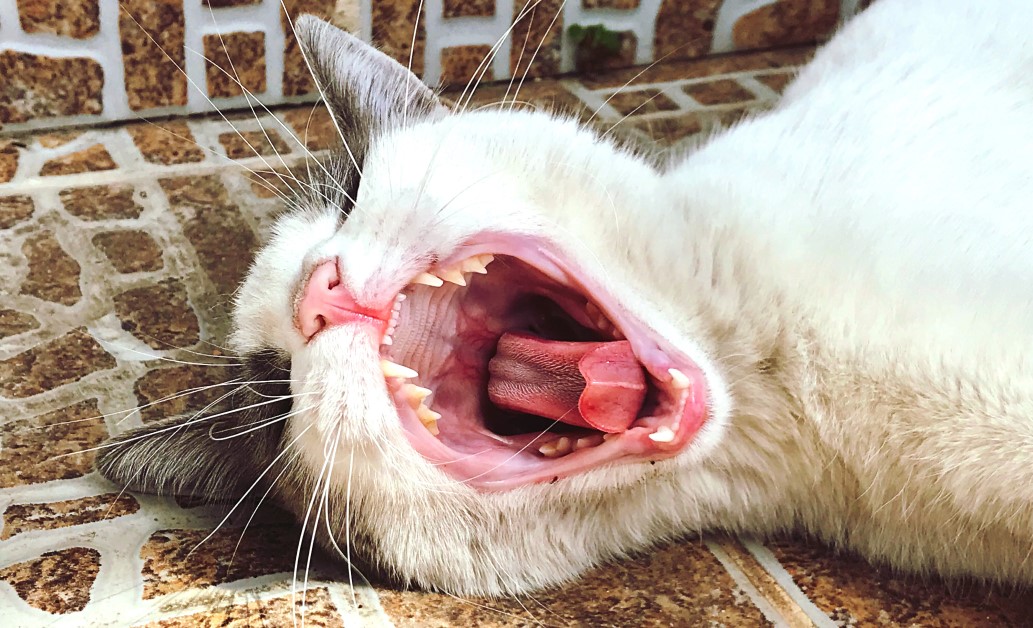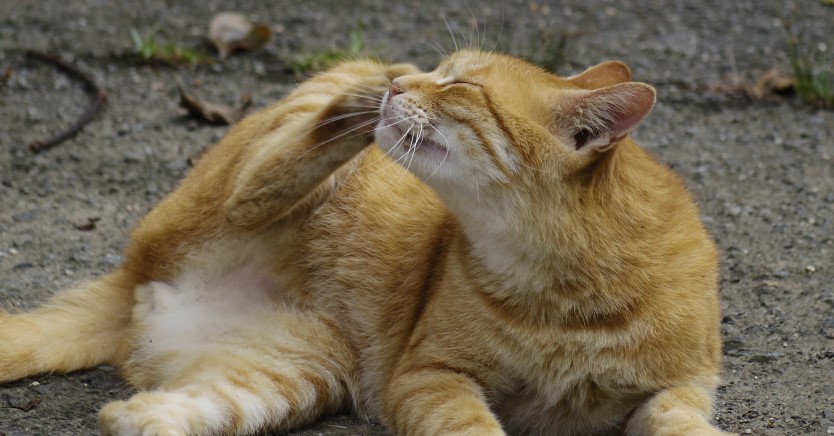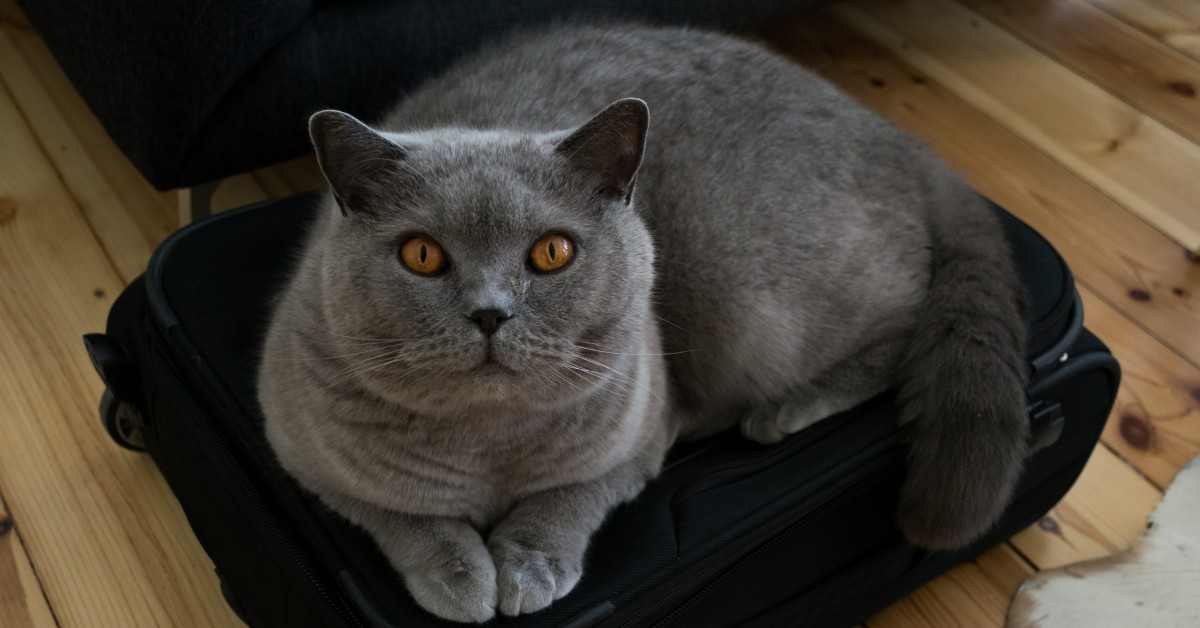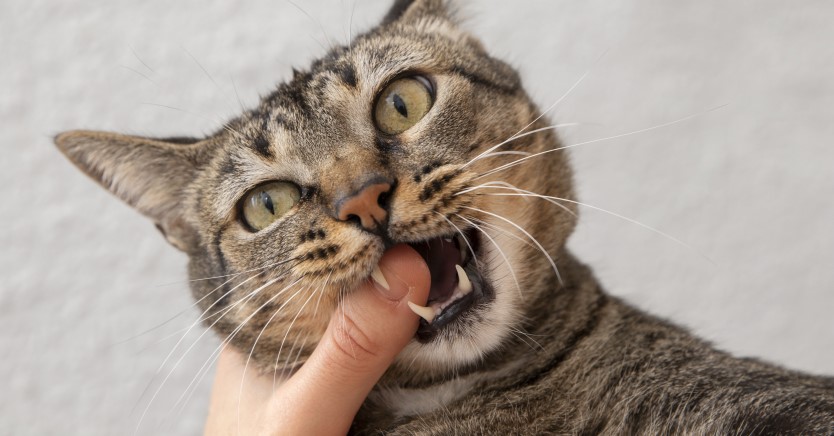Keeping Your Cat’s Teeth Healthy
Proper dental care can help keep your cat's teeth and gums healthy.

You may not give your cat's teeth much thought except when it flashes an impressive pair of fangs now and then. Apart from that, a cat's teeth bear many similarities to those of humans -- including vulnerabilities to damage and disease. The more you know about the threats to your furry friend's teeth and gums, the more easily you can recognize potential problems and schedule essential veterinary care. Let's sink our teeth into the subject of cat dental health and wellness.
Why Your Cat Needs Healthy Teeth
Just as humans go through phases of baby teeth and permanent teeth, a cat's mouth will transition from 26 baby teeth in kittenhood to 30 teeth in the adult years. These teeth, with their different structures and functions, play a critical role in a cat's life. As carnivores, cats rely on their teeth to kill and eat prey in order to survive. The fangs toward the front of the mouth do the catching and killing, while the flatter rearmost teeth chew the meat and pulverize bones.
As important as a cat's teeth are for hunting, they play other important roles as well. In the wild, for instance, cats’ sharp front teeth serve as defensive weapons against predators. In quieter moments, teeth can aid in grooming by removing pests and other debris. If your cat doesn't have healthy teeth (as well as healthy gums to hold those healthy teeth in place), it may have serious trouble getting through life.
Common Cat Dental Problems
A cat's teeth and gums can fall prey to many of the same dental problems that afflict humans. Take a look at some of the more common cat dental problems, from their causes and symptoms to potential complications.
- Gingivitis - Swollen red, sensitive gums typically indicate gingivitis. This condition occurs when dental plaque causes localized inflammation. Gingivitis should be taken seriously, since it can progress to a more serious condition called periodontitis.
- Periodontitis - in periodontitis, bacteria feeding on dental plaque and tartar trigger inflammation and destruction of the connective tissues surrounding the teeth. Eventually, the weakened tissues may allow the teeth to fall out. Drooling, bad breath, bleeding gums, and exposed tooth roots all point to periodontitis.
- Tooth resorption - An odd problem called tooth resorption poses an even greater threat to your cat's dental health than periodontitis, accounting for the single most common cause of feline tooth loss. In this painful, progressive condition, the tooth breaks down below the gum line. If your cat has resorptive lesions, it may only be able to eat soft foods, or it may be forced to swallow its food without chewing it.
- Injury-related damage - Feline teeth are strong, but they have their limits. An impact to the face or overly-forceful chewing can crack or break teeth, raising the risk of infection. This kind of injury requires immediate veterinary attention.
Preventative Maintenance for Your Cat's Teeth and Gums
The good news is that you can minimize the risks of gingivitis and periodontitis by brushing your cat's teeth several times a week. Make sure you're using a non-fluoride toothpaste designed for cats -- human toothpaste can have toxic effects on felines. You can accustom your cat to the routine by rubbing its teeth with a finger cot or gauze before advancing to a toothbrush.
Even if your cat refuses point-blank to allow tooth brushing, you still have some useful dental health options at your disposal. For example, you can ask your veterinarian to recommend a dental water additive. This kind of product, when added to your cat's water supply, offers a degree of protection against bacteria and plaque. Plaque prevention gels and oral sprays are also available for cats. Your vet may even be able to apply a dental sealant that acts as a physical barrier against germs and acids.
The right cat foods and toys can aid in the battle against feline dental problems. Dental cat treats contain natural ingredients such as taurine, selenium, and Vitamin E that fight oral bacterial and freshen breath. Catnip sticks and similar dental toys give your cat a fun chewing experience that also helps to scrape away plaque. Ask your veterinarian for recommendations on specific products that are safe and effective for cats.
Turn to Your Vet for Regular Cat Dental Care
Of course, home dental care can only go so far. If you really want to keep your cat's gums and teeth and prime condition, schedule regular preventative exams that include dental evaluations and cleanings. To perform a thorough cleaning without struggling with squirming or biting cat, your veterinarian will administer an anesthetic. If your cat suffers from a dental injury or disease, you and the vet should discuss treatment options ranging from antibiotics to tooth extraction.
With scrupulous preventative care and professional periodic evaluations, you can give your cat many years of trouble-free chewing and optimal dental health. So buy those healthy dental hygiene products, schedule those necessary exams, and continue to admire those impressive feline fangs!
Ready to start saving money on pet wellness care?
Then take a look at Mint Wellness, the pet wellness plan that provides fast reimbursement on routine pet care. Save on vaccinations, wellness exams, preventatives, dental, and more!
Learn More


